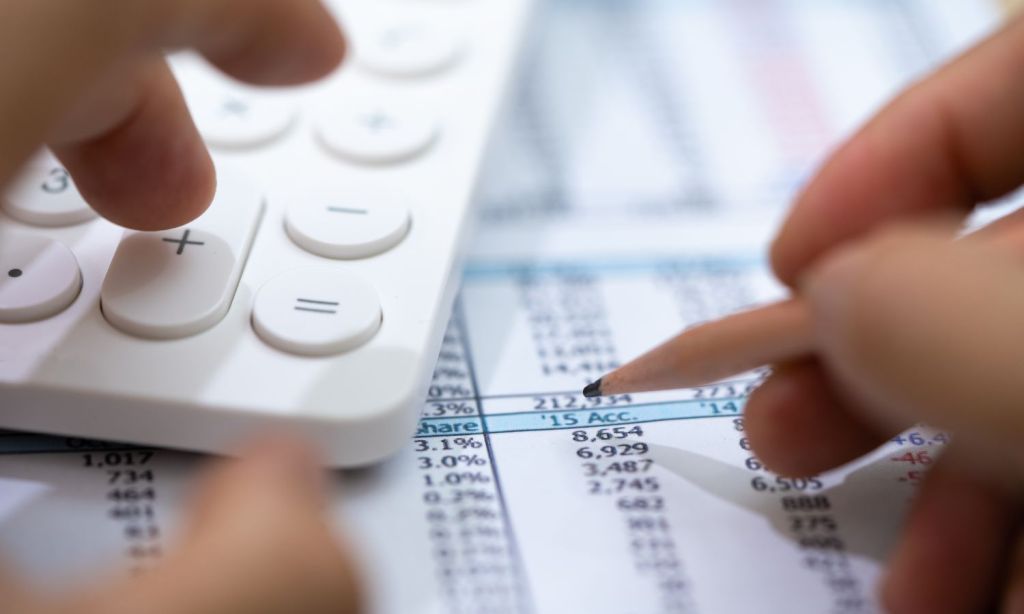With not long to go until the end of the tax year (June 30), you might think it’s too late to do anything to your finances now to get your taxes into shape for the year. You’d be mistaken. Even this close to the EOFY, there are still some last-minute opportunities you can take advantage of to maximise your tax refund for the year.
From making a donation to a charity close to your heart, to starting to gather all your refund evidence now to save you heaps of time later, ahead, Mark Chapman, Director of Tax Communications at H&R Block, shares 10 of what those things are.
Think About What You Can Claim for Your Home Office
“If you are in employment, but work from home, either occasionally or all the time, you are entitled to deductions for costs arising from working at home,” says Chapman. “The expenses you can claim include:
- Heating, cooling and lighting,
- Cleaning costs,
- Decline in value (depreciation) of home office furniture and fittings, office equipment and computers (for items over $300),
- Computer consumables, stationery, telephone and internet costs,
- Items of capital equipment (such as furniture, computers and associated hardware and software) that cost less than $300 can be written off in full immediately.
“With many retailers running End of Financial Year specials, any purchases you make now can be deducted in this year’s tax return so, from a cash flow point of view, you can minimise the time between purchase and tax deduction.”
Check Your Log-Book Is Up-to-Date for Car Expenses
“If you use the log-book method, now is the time to check that your log-book is up-to-date and that you have all the receipts, invoices and records of journeys that you will need to calculate and substantiate your claim.
“If you use the cents per kilometre method, you will still need a record of all work-related journeys during the year.
“The ATO will be looking particularly closely at car claims this year, with average claims expected to be substantially down due to COVID-19, so it’s important that your records are correct and complete.”
Mobile Phone
“If you use your personal mobile phone for work purposes, you can claim a deduction for the business-related use. Make sure you have your phone bills collected together and have kept a log of your business and personal use over a four-week period. That percentage can then be applied to the whole year.”
Make a Charitable Donation
“Make a last-minute charitable donation. You can claim a deduction for donations of more than $2 to a registered charity provided you have a receipt for the donation.”
Prepay Some Expenses
“You can claim a tax deduction this year for expenses which wholly or partly relate to next year. So, if you have some spare cash, consider paying things like union fees, professional subscriptions and annual insurance premiums in advance in order to accelerate the deduction.”
Gather Printed or Digital Evidence
“Make sure you have written evidence, such as receipts, invoices and bank or credit card statements, for everything you intend to claim,” he says.
Make a Tax-Deductible Super Contribution
“If you have some spare cash, look at making a personal contribution into your super fund. Provided the total amount of your contributions, including the contributions made on your behalf by your employer, does not exceed $27,500, this can be a great way to boost your retirement savings and claim a tax deduction for the personal contribution.
“The payment must be made by June 30 and you need to advise your super fund that you’ve made the payment by the time you lodge your tax return. Your super fund or accountant can give you guidance on how to complete the form and there’s a standard form on the ATO website here.
Offset Capital Gains Against Capital Losses
“If you’ve disposed of shares or any other form of investment and you know you’ve made a capital gain, take a look at your investment portfolio and consider disposing of any assets which you own which you know are sitting at a loss. The resulting capital losses can be offset against the capital gain.
“Be careful though if you sell shares sitting at a loss and then buy them back in the new tax year. The ATO takes a hard line against so-called ‘wash sales’. This refers to the sale of an asset before the year-end and the purchase of a substantially identical asset immediately after the year-end.
“The ATO regard the purchase and the sale as effectively the same asset and have issued a Tax Ruling which states that they can apply the anti-avoidance provisions to cancel any tax benefits and apply penalties.”
Seek Expert Help
“Speak to a tax agent at a tax firm like H&R Block. They can identify exactly what you need to do to get into shape for the tax season and maximise your deductions.”
Use the ‘Temporary Full Expensive’ If You Run Your Own Business
“If you’re running your own business, look to utilise the ‘temporary full expensing’ measure. This allows you to claim an immediate tax deduction for all capital purchases, irrespective of the cost, rather than depreciating the cost over several years, as used to happen.
“This is great for tech items such as computers, tablets and phones, as well as tools and equipment for tradies, office furniture and even motor vehicles. The allowance is available to all businesses with an aggregated turnover of less than $5 billion.
“Remember, as well as making a purchase, the asset you acquire also has to be used or available for use in your business, so realistically you need to get the item delivered and installed by 11:59pm on June 30. If you buy something now for delivery and/or installation in July, you won’t be able to claim the deduction this tax year.”
Read more stories from The Latch and subscribe to our email newsletter.







